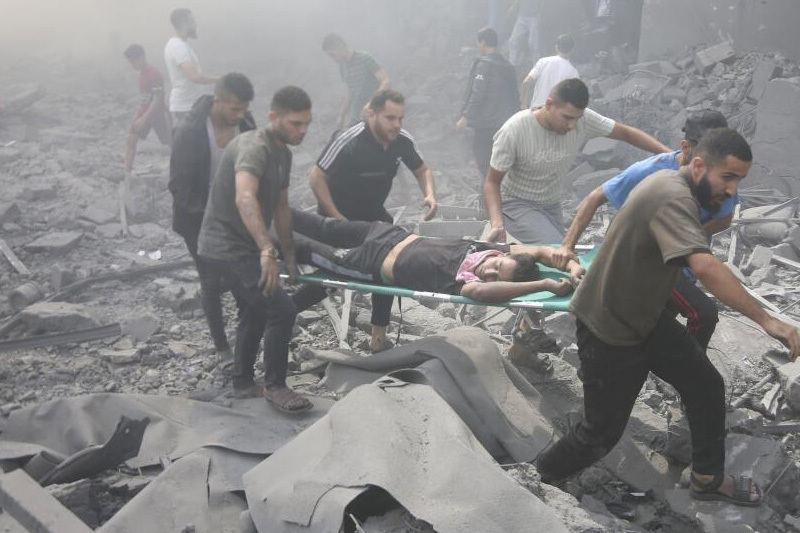
Your Comprehensive Guide To ‘International Humanitarian Law’
International Humanitarian Law (IHL) is as old as war. But what exactly are the rules and what happens when they are violated? Here is all you need to know.
According to Eric Mongelard at the UN human rights office, UNCHR, the law represents “the very minimum rules to preserve humanity in some of the worst situations known to mankind.”
This ever-growing set of rules apply the moment an armed conflict has begun, seeking to limit an incident’s brutal effects on civilians and non-combatants.
What Are The Geneva Conventions?
The International Humanitarian Law in place today is primarily based on the Geneva Conventions, the first of which predates the United Nations by almost 100 years.
A Austrian-French war in 1859 prompted Henri Dunant, a Swiss national tending to battlefield casualties, to propose what became the International Committee for Aid to the Wounded.
It transformed into International Committee for the Red Cross followed by the First Geneva Convention, signed in 1864. Since then, many nations have adopted subsequent other Geneva Conventions.
Keep Reading
Whom Does IHL Shield From Harm?
International Humanitarian Law is known to protect civilians, aid workers, schools, hospitals and safe routes to deliver emergency assistance, among other entities.
Warring parties cannot target civilians, must ensure operations and weapons they choose minimise or avoid casualties, and must provide sufficient warning of an impending attack.
Even with these laws in place, however, 116 aid workers died while doing their jobs in 2022. The raging Israel-Hamas war in the Middle East has claimed 15 UN workers’ lives since October 7.
Who Could Help End Impunity For Perpetrators?
The International Criminal Court is the first permanent global criminal court established to help end impunity for perpetrators of the most serious crimes of concern to the global community.
It’s an independent international organisation and is not part of the UN system. The ICC can launch investigations and open cases related to allegations from almost anywhere in the world.
The court is currently probing 17 cases. Part of its work includes an outstanding arrest warrant against Russian President Vladimir Putin related to Moscow’s full-scale invasion of Ukraine.



